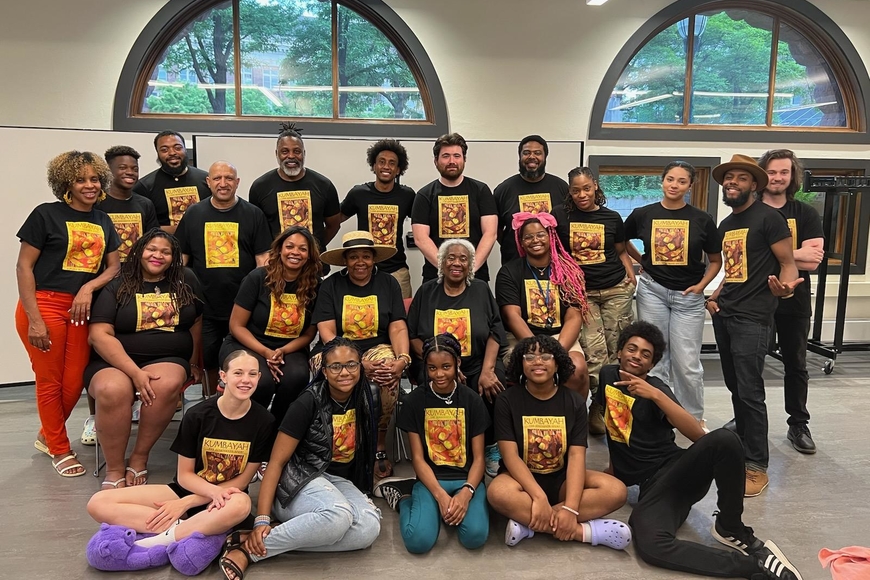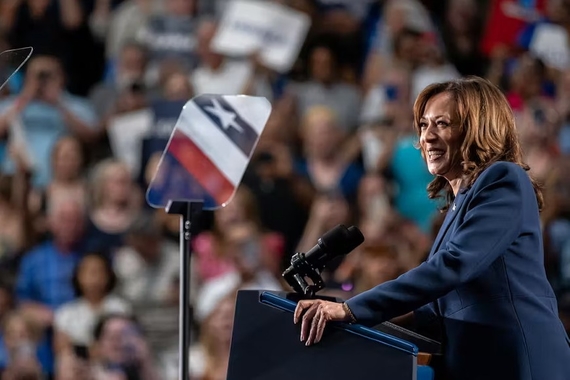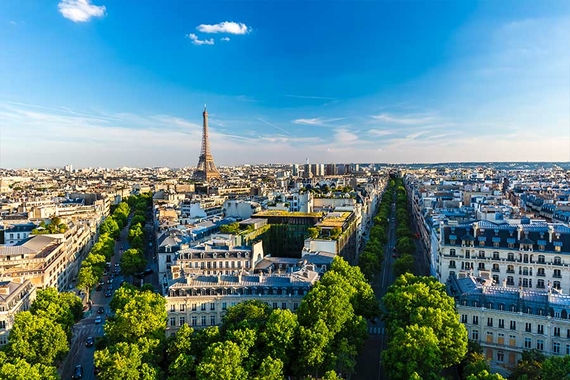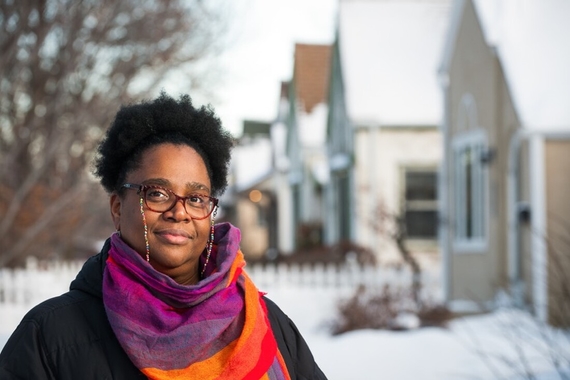Juneteenth Then and Now
Then and now
A Hub residency. And a reality.
Juneteenth Then and Now represents a full-circle moment for Associate Professor Adam Bledsoe (Geography, Environment & Society).
As an eleven-year-old, Bledsoe recalls being part of one of the first audiences for Kumbayah The Juneteenth Story. He attended the production during summer camp through the African American Academy for Accelerated Learning and vividly remembers many scenes, including the play’s introduction.
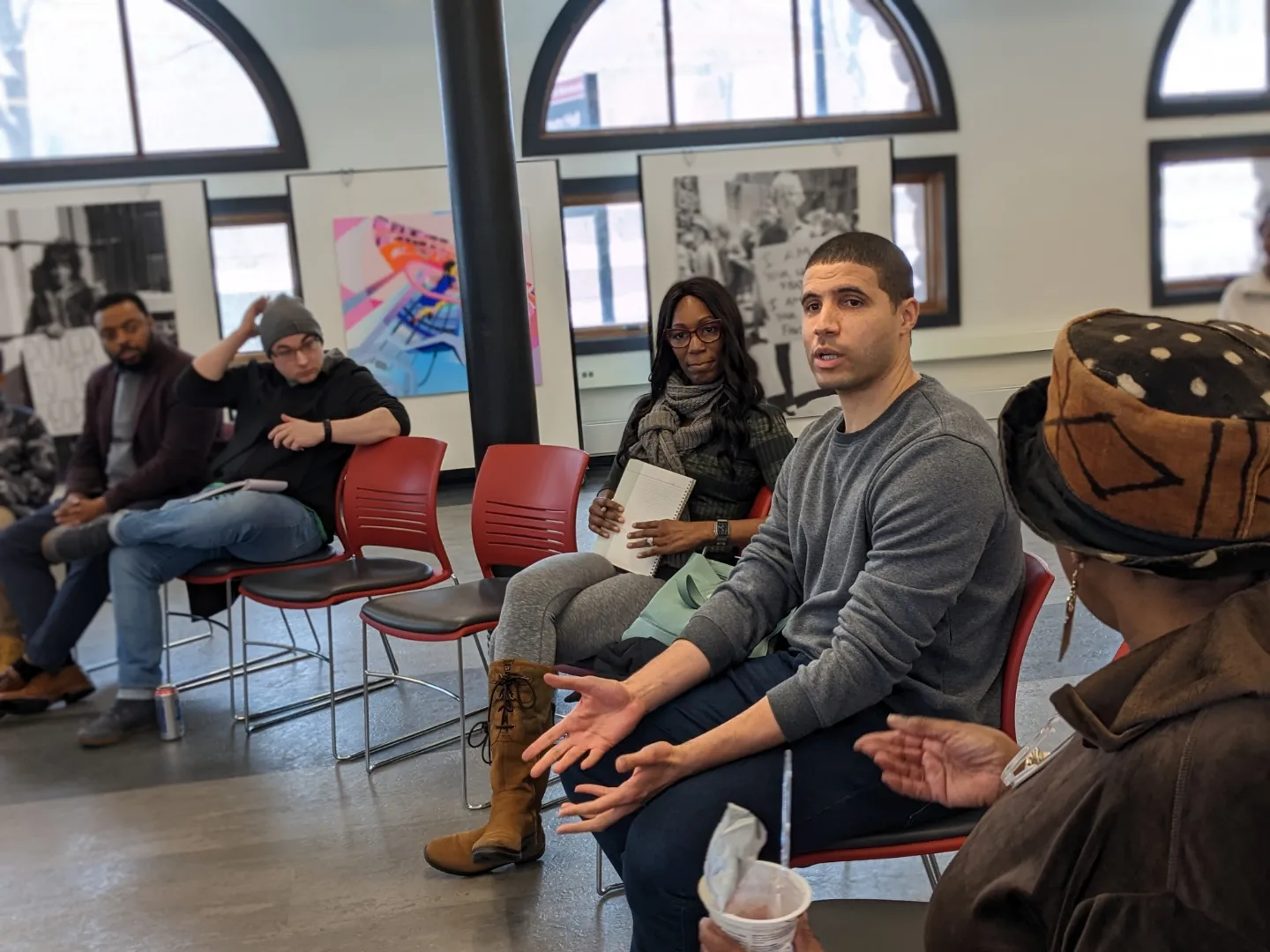
“The acknowledgment at the beginning signaled the significance of Juneteenth as more than just a day to barbecue and hang out at the park, and that always stuck with me. This is a time for people to come together and celebrate, while understanding there is a really significant historical component.”
Today, Bledsoe is the faculty lead for the latest residency in the Liberal Arts Engagement Hub, working to ensure that history is not forgotten. The multigenerational project blends local and national history, performance art, storytelling, and Black resistance and brilliance.
There will also be pie.
A remarkably serendipitous connection
Rose McGee, President and Founder of Sweet Potato Comfort Pie, is the community lead for the residency and author of Kumbayah The Juneteenth Story. McGee wrote the fictitious play decades ago—nearly 30 years before Juneteenth was recognized as a federal holiday—to recount the story of emancipation and educate audiences about the “essence of humanity that connects all people.”
She describes her own connection with Bledsoe as remarkably serendipitous.
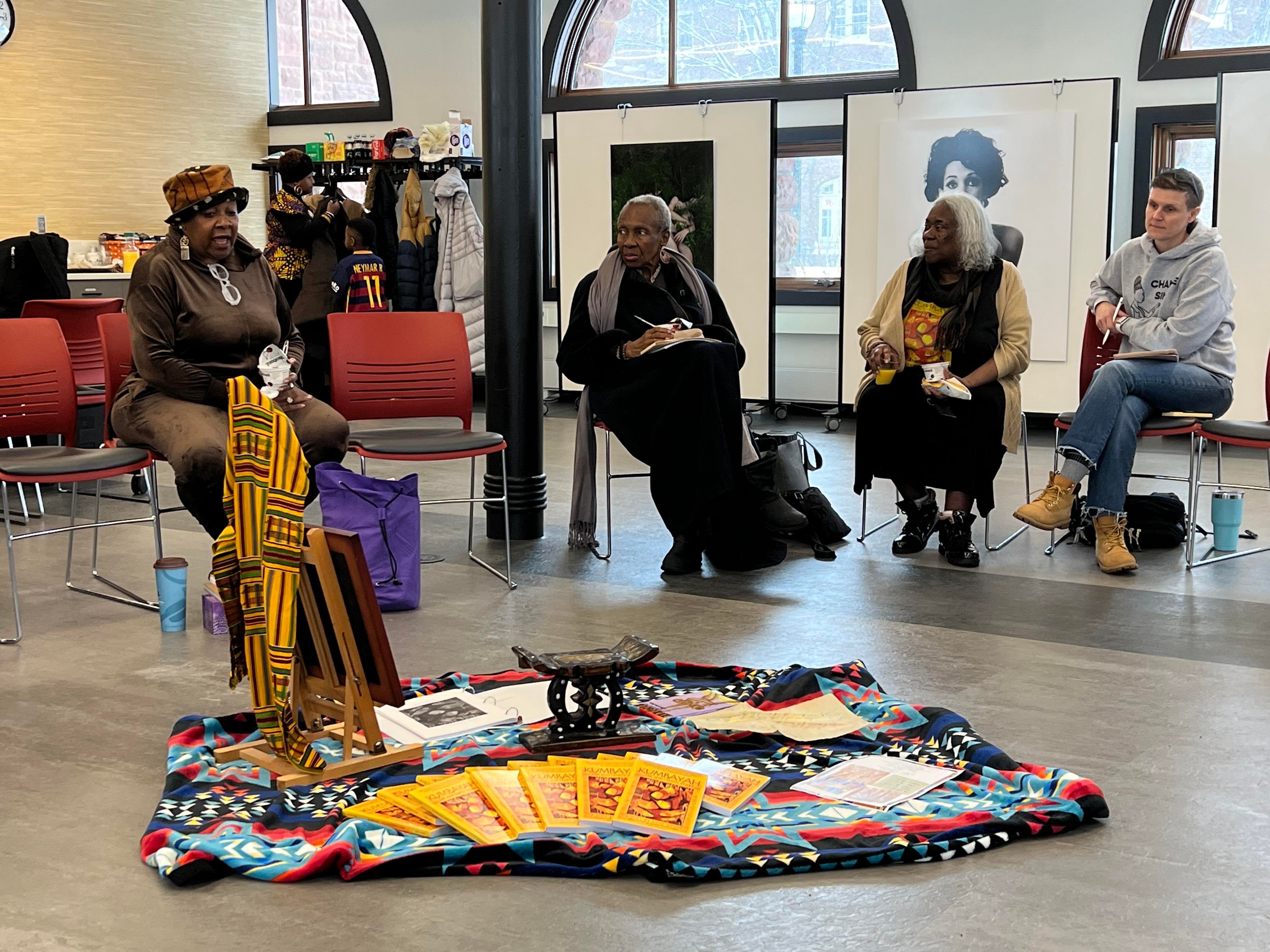
“I had no idea we’d go down this journey, but that is sort of how my life has been. I met Adam through Elder Katie Sample’s program and was very impressed and inspired by him. When this [Hub residency] opportunity came up, I realized I needed to be doing something, and I thought of Adam right away.”
Since September, the playwright and the professor have come together to offer their community a multifaceted reflection on Black history. They have used the Hub to host Kumbayah casting auditions and rehearsals, as well as “Story Circles”—facilitated conversations with the cast, local scholars, and community members to explore racism and Black resistance in a historical and contemporary context.
“Our most recent event was a rehearsal where we spent the first part of the day in sort of a lecture-type conversation to talk about the importance of storytelling and how our histories and stories shape who we are as people,” shares Bledsoe. “We put our chairs in circles, face one another, share food—it just feels like a community space when we’re in there.”
Bridging the gap between college and community
This multigenerational approach pushes the young cast and community elders to discuss aspects of Minnesota’s history that are often ignored and rarely taught in formal academic settings.
“Having grown up in and around the U, I feel like it’s important to bridge the community and university gap that can oftentimes exist,” says Bledsoe. “U spaces can be kind of exclusive; this residency is a good opportunity to create connections between resources and personnel.”
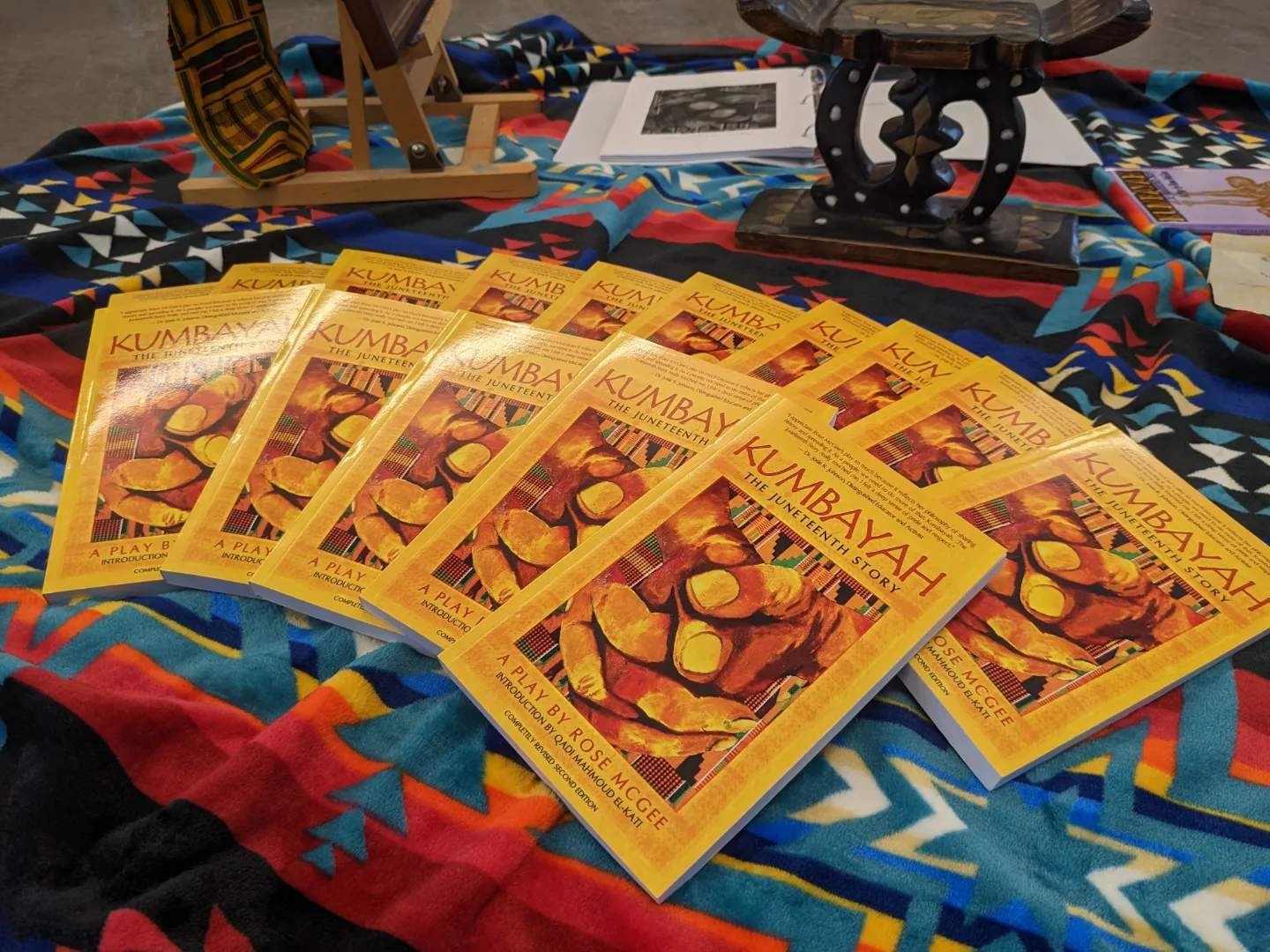
The residency has also extended beyond the walls of Pillsbury Hall and into North Minneapolis through an immersive walking tour with well-known storytellers Elders Nothando and Vusumuzi Zulu. McGee hopes these experiences will have a lasting impact.
“The intent of all of it is to strengthen [participants’] understanding of what Juneteenth is today, not just as a thing of the past,” McGee says. “The play is still relevant in many ways, even more so today. How do you take some of what you’re gaining in these experiences to think about the content of the production and what’s happening right now?”
Celebrating Black brilliance and stories
Juneteenth Then and Now will culminate with staged performances of Kumbayah The Juneteenth Story across the state of Minnesota. McGee intends to honor community leaders and advocates—including State Senator Bobby Joe Champion, chief author of the Minnesota bill recognizing Juneteenth as a state holiday—by presenting them with a Sweet Potato Comfort Pie before each performance.
After the curtains have been drawn, Bledsoe and McGee will host their final residency lab to reflect on the play and share a Black culturally centered meal with attendees.
For Bledsoe, the full-circle experience has underscored the importance of storytelling as a way to preserve the past and provide hope for the future. “For so long, Juneteenth was celebrated in Texas. It wasn’t until networks of people came together to spread the story across the U.S. that it became of national significance. The more I go on in life, the more I see the importance and impact that [our] stories have.”
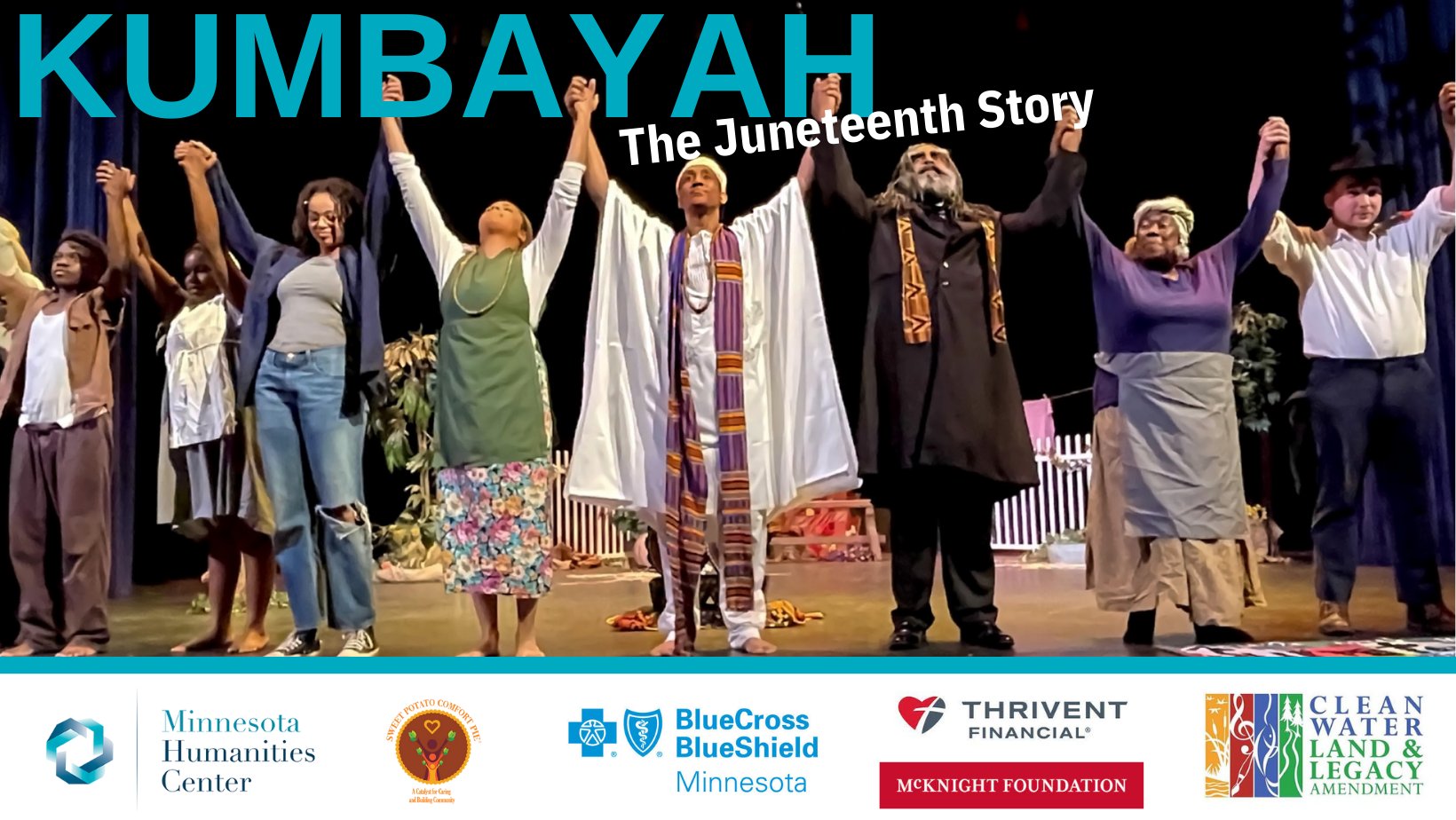
Upcoming performances
Learn more about Rose McGee’s organization, a catalyst for caring and building community, and see all upcoming performances of Kumbayah The Juneteenth Story.
The Liberal Arts Engagement Hub
Juneteenth Then and Now is one of five Hub Residencies for the 2022-2023 academic year. The Liberal Arts Engagement Hub seeks to facilitate reciprocal and trusting partnerships between humanistic scholars in the arts, humanities, and social sciences and the community to respond to important social challenges.
